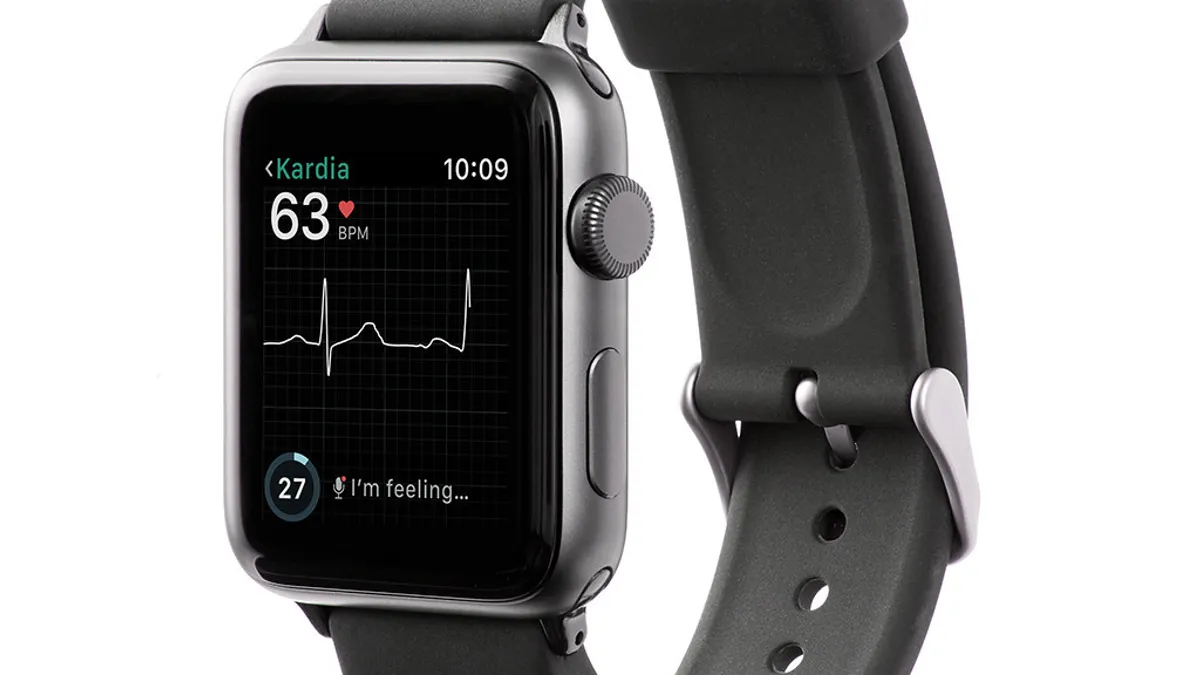Dive Brief:
- Apple infringed on AliveCor’s patented wearable electrocardiogram technology, the U.S. International Trade Commission said in a final ruling, even as it suspended enforcement of an import ban.
- In its final determination, the ITC confirmed the position it set out in its initial position in June. The commission found the Apple Watch infringed on two AliveCor patents and thereby violated a law that can trigger an import ban.
- However, Apple filed an emergency motion last month to delay the enforcement of the ban until after a final patent board written decision on the patentability of AliveCor intellectual property.
Dive Insight:
The dispute between AliveCor and Apple centers on wearable technology to capture electrocardiograms and detect atrial fibrillation. AliveCor launched a wristband accessory that turned Apple Watch into a cardiac monitoring device, only for Apple to build electrocardiogram capabilities into later versions of its wearable and negate the need for the accessory.
AliveCor responded by suing Apple in 2020. Since then, the pair have engaged in a legal tussle that now may be nearing its conclusion, with the ruling of the U.S. Patent Trial and Appeal Board (PTAB) and final ITC determination coming in quick succession.
Last month, the PTAB ruled that 30 claims in one of AliveCor’s patents, U.S. Patent No. 10,595,731, aren’t patentable. The ruling affected the ITC. While the ITC finalized its ruling that Apple has infringed on “the ‘731 patent” and another AliveCor patent, it suspended its enforcement of an exclusion order prohibiting further importation of the infringing Watch devices and a cease and desist order against Apple.
The suspension will stay in place until final resolution of the patent board’s finding that AliveCor patent claims aren’t patentable. It is also possible that the U.S. government will step in as the Biden Administration has a 60-day period in which it can decide to veto the import ban based on policy concerns.










